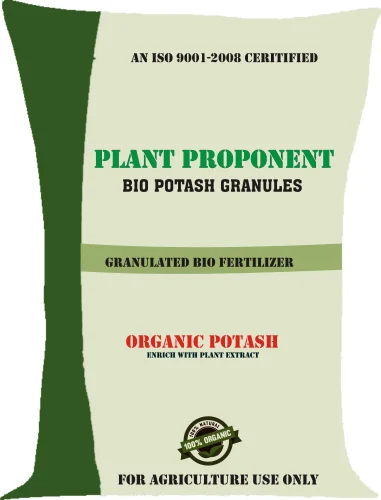Description
The bacteria contained in SUN BIO POTASH on application to the soil get activated and multiply by utilizing the carbon source of soil or exudates of the root and in this process secrete organic acids and enzymes.
₹1,100.00 Original price was: ₹1,100.00.₹900.00Current price is: ₹900.00.
Chemical Name: Nill
It increases root growth and improves drought tolerance. Crops: Cereals, Millets, Pulses, Oilseeds, Fiber Crops, Sugar Crops, Forage Crops, Plantation crops, Vegetables, Fruits, Spices, Flowers , Medicinal crops, Aromatic Crops, Orchards and Ornamentals.
The bacteria contained in SUN BIO POTASH on application to the soil get activated and multiply by utilizing the carbon source of soil or exudates of the root and in this process secrete organic acids and enzymes.
| Qty (gm/ml) | 50kg |
|---|
Chemical Name: Nill
“Descriptions
Cubic Fersa (Ferrous Sulphate 19%) is a soil alteration to lower the pH of highly alkaline soil so that plants can absorb soil’s nutrients essential for crop growth and food production.
It is the key component of many enzymes associated with energy transfer, nitrogen reduction and fixation, and lignin formation.”
Micronutrients are the fertilizers that are required in very small quantities but are crucial for various plant growth and development processes such as helping in protein synthesis, flowering, fruiting, etc.
Chemical Name: Nill
Zinc sulfate is a chemical used in agriculture to treat zinc deficiencies in plants. Zinc is an essential micronutrient for plant growth, and deficiencies can lead to poor plant development, reduced yields, and reduced protein, carbohydrates, and chlorophyll formation.
Chemical Name: Nill
“Potassium sulphate (Ka SOa) is a fertilizer commonly known as sulfate of potash. It is a water-soluble potassium salt that is a popular source of potassium for plants. Potassium Sulphate NPK 0-0-50 fertilizer indicates that this fertilizer provides high potassium (K) content (50%), with no significant amount of nitrogen (N) or phosphorus (P).
Here’s a breakdown of the NPK ratio:
1.N (Nitrogen): 0% – Potassium sulfate doesn’t contain any nitrogen.
2.P (Phosphorus): 0% – Potassium sulfate doesn’t contain any phosphorus.
3.K (Potassium): 50% – This fertilizer is a rich source of potassium.”

